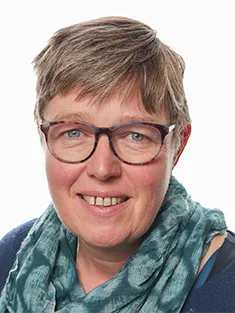Winner: 2022 Excellence in Primary Education Prize
Caroline Skerry
St Joseph's School
For outstanding contributions to delivering primary science teaching and supporting others to provide excellent teaching through establishing and leading the Cornwall Primary Science Share.

My day-to-day job is that of Junior Head at St Joseph's School in Launceston. This role includes ensuring the teachers and pupils in my care have every opportunity to reach their potential.
Biography
Caroline Skerry is a Junior Head at St Joseph's School in Launceston, Cornwall, and a Fellow of the Primary Science Teaching Trust (PSTT). She delivers primary science CPD for Cornwall SCITT, STEM and PSTT and is an Explorify Champion.
Good science education can support global challenges by ensuring that the time is taken to consider all the outcomes, particularly the environmental ones. Scientists must always have our planet at the forefront of their minds in everything they do.
Mrs Caroline Skerry
Q&A with Mrs Caroline Skerry
Who or what has inspired you to have a role in education?
Teaching was the last thing I wanted to do. In fact, in my end of school yearbook my quote is 'He who can does, he who can't teaches'. However, when I began my PGCE in 1997, I realised that teaching was my vocation and 24 years later I still look forward to going to work every day. How lucky am I!?
What motivates you?
Being the best I can be, and ensuring all the children in my care have the opportunity to be the best they can be.
What advice would you give to a young person considering a career in chemistry?
If you have a passion for chemistry, realise it.
How have your students inspired you?
They inspire me every day with their enthusiasm, love for learning and curiosity.
How can good science education support solving global challenges?
Good science education can support global challenges by ensuring that the time is taken to consider all the outcomes, particularly the environmental ones. Scientists must always have our planet at the forefront of their minds in everything they do.
Why is chemistry education important?
Because it is an integral part of primary science, and let's be honest, it's where a lot of the 'fun' science happens.
What has been a highlight for you (either personally or in your career)?
The day a former student came to find me to tell me they had become a teacher because I had inspired them, and any time one of my students has a 'lightbulb' moment.
What has been a challenge for you (either personally or in your career)?
Lockdown learning.
How are the chemical sciences making the world a better place?
Because without chemistry there would be no wine or beer.
Why do you think teamwork is important in science education?
All science educators are ultimately aiming to achieve the same outcomes – to ensure excellent science education. Working as a team ensures that all teachers have access to the resources and support they need to achieve this.
Who or what has supported you in your career as an educator?
There are too many people to name, from Tony Doyle, my first Head, to the PSTT, STEM Learning, the RSC, and the SMT at St Joseph's where I work now, and of course all those in between.
For a bit of fun.
...What is your favourite element?Ah – the element of surprise